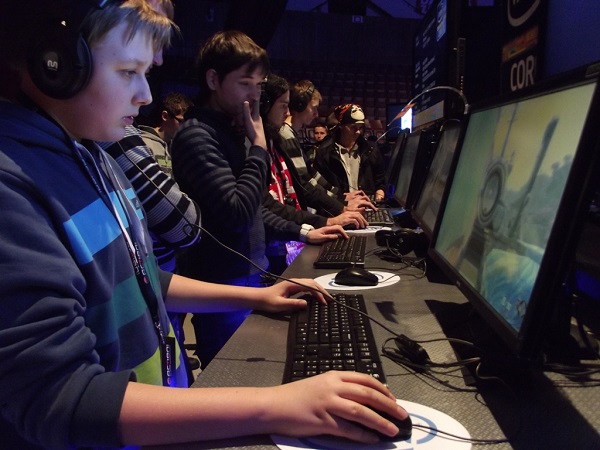As any gamer knows, gone are the days where multiplayer games meant you had to actually sit down with your buddies to play with or compete against them. Since the late ’90s for PC users and the early 2000s for those who prefer consoles, we’ve had the ability to play multiplayer titles with our friends, and complete strangers, over the web. While this has led to an increased focus on multiplayer options on the developer side of things, it’s also brought about a whole new take on the competition aspect of gaming.
Yes, I’m referring to the world of eSports, which has grown so incredibly in the past year alone that it’s nearly impossible to track its every movement. One of the biggest stories was the acquisition of streaming site Twitch by Amazon. According to the Wall St. Journal, it ended up being a $970 million sale, which clearly means huge things for both Amazon and Twitch. And it’s the latter that was actually making waves on the eSports front even before their huge payday. Basically, the platform’s immense and consistent success by way of streaming video of people playing games proved one thing: people really like watching other people play certain video games.
In particular, you’ll find a lot of commotion/press over the games in which people actually compete, such as League of Legends. The game, which is now 5 years old, is perhaps the biggest multiplayer online battle arena title of its kind, and some professional players are making serious cash off their characters and skills. Another big one is the Call of Duty series, thanks in part to the money coming in from gamer Matt Haag. According to CBS, he made nearly $1 million off playing Call of Duty last year alone—by the way, he’s only 22 years old and apparently has a “lucrative contract” with Red Bull. For playing games. Seriously.
What’s perhaps even crazier than Haag’s always-growing bank account is this: Chicago’s Robert Morris University is offering eSports scholarships. Oh, and this fact, too: The U.S.’ State Department is granting athlete visas to professional gamers entering the States to compete in a tournament. In other words, gamers are now being treated as athletes—well, depending on how talented they are, of course.
The thing is, the idea of eSports isn’t necessarily “new” in any way, it’s just getting a lot more mainstream attention. You know, much like video games in general, which are no longer seen as an activity for “geeks” and “nerds” (whatever that means). When it comes to eSports, though, the concept began gaining momentum in the mid 1990s with the creation of the then-Quake-specific convention/competitive event known as QuakeCon.
It’s grown in the years since, but it undoubtedly helped shape eSports as we know. The same can be said for the online gaming boom of the early 2000s. For those unfamiliar, poker most notably rose to fame on the backs of online-playing amateurs who landed spots at real-life tournaments. For years, gaming platform Bet Fair joined forces with tournament sponsors such as the World Series of Poker to allow amateurs to hone their skills and land a spot at the table with the biggest names in the game. Included among those is Chris Moneymaker, who famously won the 2003 WSOP. Practice your poker skills online at https://onlinecasinocanada.guide.
As we move ahead into the New Year, it’ll be intriguing to see exactly where eSports will go—and how far it will go! Some argue that it has the potential to be more popular than actual professional sports, while others have stated that eSports really has no ceiling in terms of potential. We’ll see.



